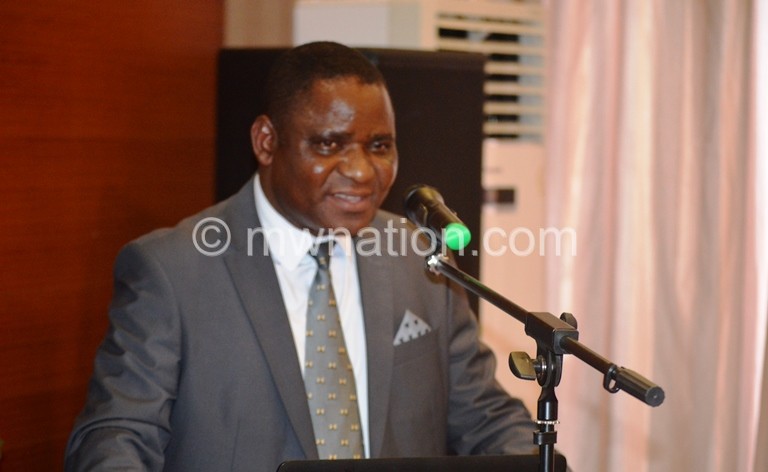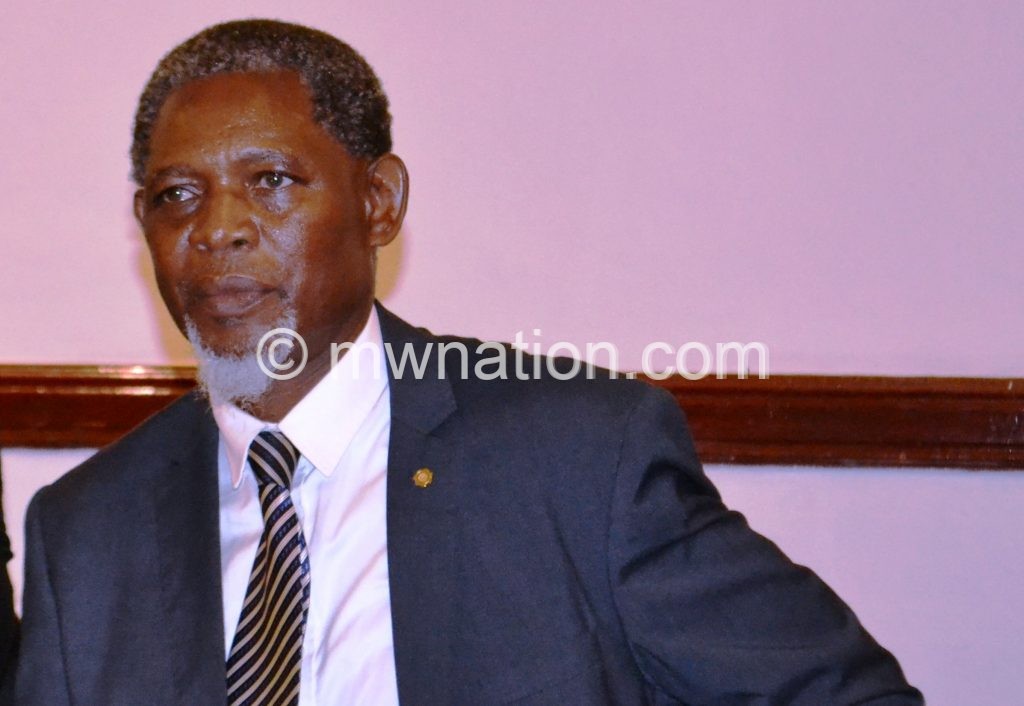MEC fails to submit audit report
Following failure by the Malawi Electoral Commission (MEC) to submit an electoral audit report, the legal team of opposition Malawi Congress Party (MCP) is considering filing an application in court to ensure compliance.
The High Court sitting as a Constitutional Court, asked the electoral body to submit the audit report within July, in the ongoing constitutional case where MCP leader Lazarus Chakwera and UTM president Saulos Chilima are challenging results of the May 21 2019 presidential election.

But Titus Mvalo, a member of the MCP legal team and his counterpart for UTM, George Mwale, said, in separate interviews, on Friday that MEC has failed to comply with the court order and noncompliance of the court orders have consequences.
MEC chief elections officer (CEO) Sam Alfandika, in an interview on Friday, said MEC would submit the report when it has it ready.
“You can only submit what you have, if you don’t have it, what can you submit? That report is from an audit firm, not UNDP,” he said.

MEC lawyer David Matumbika Banda had earlier declined to comment on the matter, advising that the MEC CEO was the appropriate officer to do so.
Mvalo said it was unfortunate that MEC has failed to comply with the court order, disclosing that his team was considering filing an application to ensure they get the audit report at any cost.
“The court told MEC to ask UNDP in writing to release that audit report to them for submission to court. And the court further advised that should they have any problems that UNDP is not releasing the report, it should inform the court. But as we gather, there is nothing so far,” he said.
Mwale, on his part, said the court order made on June 27 2019 required MEC to submit the report within 11 days—meaning this should have been done at least by July 12 2019.
He said this was clear disobedience of the court order and, obviously, MEC would face consequences.
The Constitutional Court, on June 27 2019, gave MEC 11 days to disclose originals of log books, result tally sheets, voter registers and an audit report.
Two MEC officials—King Norman Rudi and Deverson Makwete—made statements that were presented to the court, indicating that originals of log books, voter registers and counterfoils for all ballot papers used, unused, spoilt and cancelled for all the 5002 polling centres were no longer in the custody of the Clerk of Parliament.
And for the audit report, the officials stated that it has always been in the custody of the UNDP-Malawi, and it was on this basis that the court ordered MEC to ask UNDP in writing to furnish such information to the court.
When the court reconvened on July 25 2019, in its unanimous decision, it concluded that MEC had, among other things, failed to disclose the originals of log books, result tally sheets, voter registers and the audit report.
The court also noted that Makwete had possibly lied under oath to the court. It, therefore, ordered Malawi Police Service (MPS) to investigate him for perjury.
Regarding the audit report, the court observed that the electoral body brought no evidence on whether or not it had contacted the UNDP-Malawi to access the report.
The court, which granted MEC a five-day relief to conclude collection of sworn affidavits before trial starts on August 8 in this case where petitioners want presidential election results nullified, concluded that MEC failed to obey its order for disclosure of the audit report.
MEC is on record to have said, through its embattled chairperson Jane Ansah, that the vote counting process and the declaration of the national result of the May 21 2019 elections were duly audited.
The ruling by a five-member panel of High Court judges was part of the court’s two key requests that MEC made prior to the initial commencement of the case on July 29.
MEC wanted a 14-day extension for compiling sworn statements and a court order against officials and supporters of first petitioner UTM and second petitioner MCP, restraining them from interfering with their work.





